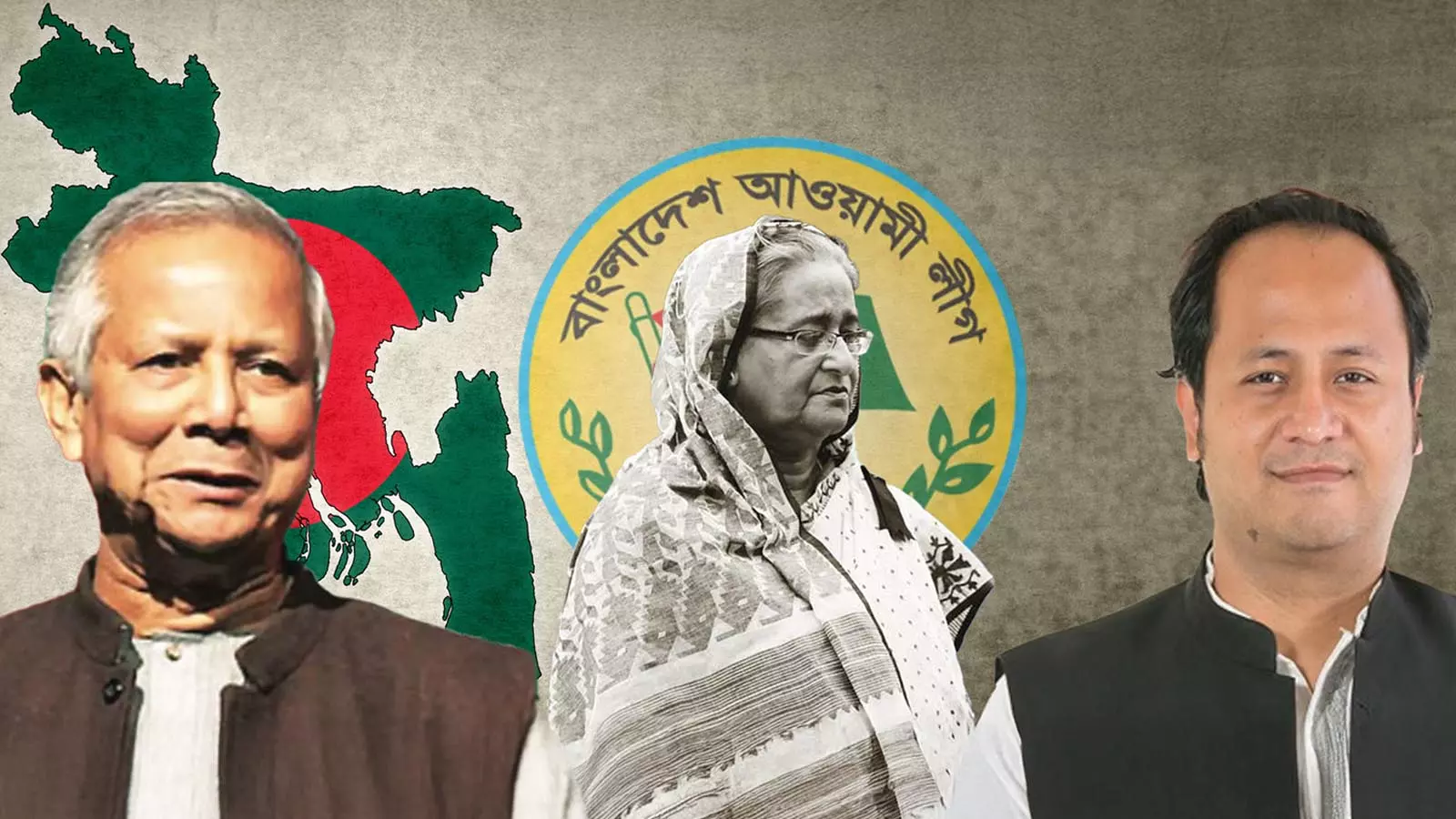
Why should Sheikh Hasina submit to a sham tribunal in Bangladesh?
Former Bangladesh Education Minister Mohibul Hasan Chowdhury claims foreign powers behind coup; says 'gang with no institutional legitimacy' ruling nation now

As Bangladesh grapples with a volatile political crisis, former Education Minister and Awami League leader Mohibul Hasan Chowdhury offers an unflinching account of the government’s fall, the ideological stakes, and the road ahead.
In an exclusive interview with The Federal, Chowdhury speaks candidly about the country's constitutional unraveling, foreign interference, the future of Sheikh Hasina, and his own legal battles.
How do you interpret the current political crisis in Bangladesh? What are the key threats the country faces right now?
The country is experiencing an existential crisis. The foundational values of our nation—born out of the 1971 Liberation War and the earlier struggle against Pakistan—are being systematically dismantled. Those who have seized power are not just occupying office illegally, they’re actively working to erase our constitutional and historical legacy. It’s a full-scale attack aimed at rebranding Bangladesh and rewriting its history.
If elections proceed, how do you see the Awami League responding? Will the party participate or resist?
Awami League has always been an election-oriented party. Participation in democratic processes is in our DNA. But what we’re seeing now is a gang with no institutional legitimacy or party registration, staging this coup. They’ve manipulated geopolitics, using external backing to remove a legitimate government.
Despite their misinformation campaigns, both regional and international surveys show that public opinion still supports the Awami League.
You’ve alleged external involvement. Could you elaborate on how foreign powers played a role?
This regime couldn't have come to power without international complicity. Content factories using AI tools—some based in Pakistan—have flooded social media with false narratives.
On the ground, they’ve resorted to violence.
Certain nations, displeased with Bangladesh’s diplomatic proximity to India, saw an opportunity to destabilise a successful government. These anarchists, many operating from abroad, misled our youth into believing a fake narrative. And now the consequences are visible.
The Awami League was formally banned this March. What does this ban signify for you and other party leaders?
This is not the first time the Awami League has been banned, and history shows such bans fail. Our party is not just an ideological institution—it carries the emotions and memories of generations. We’ve endured assassinations, most notably the brutal killing of our founding father’s entire family in 1975.
This regime couldn't have come to power without international complicity. Content factories using AI tools—some based in Pakistan—have flooded social media with false narratives.
Our fight now is deeply personal. The regime has falsely labeled us as atheists trying to erase religious identity. But this rhetoric, spread by ultra-religious demagogues abroad, is only breeding communal fanaticism.
Bangladesh has now become an international concern, not just a regional one. If we don’t restore secular democracy, extremist forces like ISIS could find a foothold here again.
Do you think Sheikh Hasina will return to Bangladesh to face trial?
Why should she submit to a sham tribunal? What’s happening is not a legal process—it’s theatre. She has faced legal scrutiny in the past, during 2007–08, and cooperated when the judiciary functioned within the constitutional framework.
But now, the courts are being used as political tools. When legitimacy returns, when the rule of law is re-established, she will return. She’s not one to hide from accountability.
You too are facing charges. What’s your response to the allegations against you?
The media has published lies—claims of 42 bank accounts and massive financial transactions without a shred of evidence or any opportunity for me to respond. My family has just four accounts, including my daughters’ student accounts.
Yet the authorities say I’m linked to crores worth of transactions, but even they can’t explain how. They’ve admitted that the case was pre-scripted. It’s politically motivated persecution.
Take us back to those final days of the Awami League government. What was happening behind the scenes?
Initially, the protests seemed to be about job quotas, and we took them at face value. But when the demonstrations turned violent and lives were lost, we made a conscious decision to avoid escalating the conflict.
The courts are being used as political tools. When legitimacy returns, when the rule of law is re-established, she (Hasina) will return. She’s not one to hide from accountability.
We could have countered with force—we had the numbers and the government apparatus—but chose restraint to prevent a bloodbath. Responsibility for security was handed over to the army and police.
Unfortunately, orders were issued not to fire, which emboldened the attackers. The result was chaos—rape, arson, murder across the country. Yes, mistakes were made on both sides, but the international actors backing these movements failed to plan for the aftermath. They removed a regime without preparing for what would follow.
What’s the path forward for you and for the Awami League?
We are not seeking revenge. As individuals and as a party, we’ve endured trauma and destruction for decades. But this time we’ve gained clarity. As mature political actors, we’ve learned hard lessons. Our future actions will be guided by these experiences.
The Awami League may be underground for now, but we are organised. And we are committed to rebuilding a peaceful, secular, democratic Bangladesh—not just for ourselves, but for the global good.
The content above has been transcribed from video using a fine-tuned AI model. To ensure accuracy, quality, and editorial integrity, we employ a Human-In-The-Loop (HITL) process. While AI assists in creating the initial draft, our experienced editorial team carefully reviews, edits, and refines the content before publication. At The Federal, we combine the efficiency of AI with the expertise of human editors to deliver reliable and insightful journalism.

